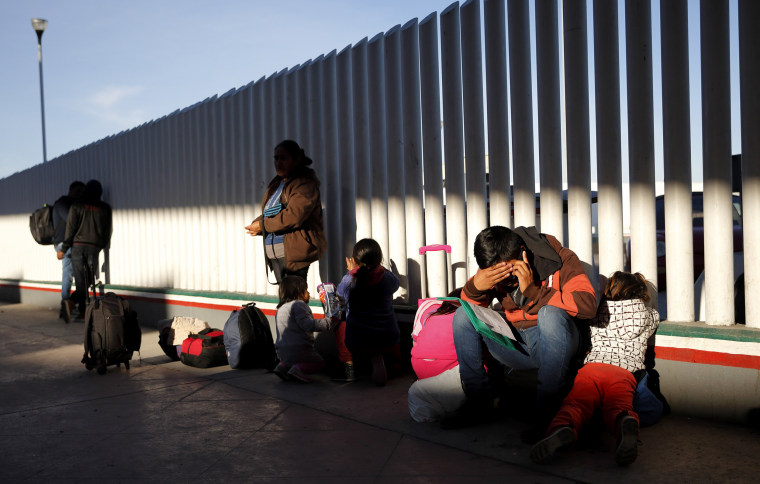WASHINGTON — The Trump administration announced a new rule Wednesday that would further limit immigrants' eligibility for asylum if they have been convicted of certain crimes, including driving under the influence and possession of drug paraphernalia.
The rule, if finalized, would give asylum officers seven requirements with which to deem an immigrant ineligible to apply for asylum.
Other acts that would make an immigrant ineligible for asylum under the new rule include the unlawful receipt of public benefits, illegal re-entry after being issued a deportation order and being found "by an adjudicator" to have engaged in domestic violence, even if there was no conviction for such violence.
The rules could eliminate large numbers of asylum-seekers from ever having their cases heard in court. Currently, immigration courts have a backlog of over 1 million cases, according to data kept by Syracuse University.
In a statement, the Department of Justice and the Department of Homeland Security said the new rule would "increase immigration court efficiencies."
Andrew Free, an immigration attorney based in Nashville, said the new regulation is "calculated to enable the denial of as many claims as possible."
Free said the most common charges he sees for his immigrant clients are driving under the influence, domestic violence and driving without a license. Driving without a license is particularly common for immigrants who have had to use fake travel documents to enter the U.S. and live in states that do not give licenses to undocumented migrants.
"People who are fleeing persecutions and violence are not going to be able to get travel documents from the governments inflicting violence upon them. If you have to resort to other means of proving your identity, you won't be eligible [for asylum,]" Free said.
The Trump administration has unveiled a number of new requirements meant to curb asylum applications this year. The most successful of those policies has been "Remain in Mexico" or MPP, that requires lawful asylum-seekers from Central America to wait in Mexico, often in dangerous conditions, until their court date in the United States. Over 60,000 asylum-seekers are currently waiting in Mexico for a decision to be made in their case, a process that can take over a year.

